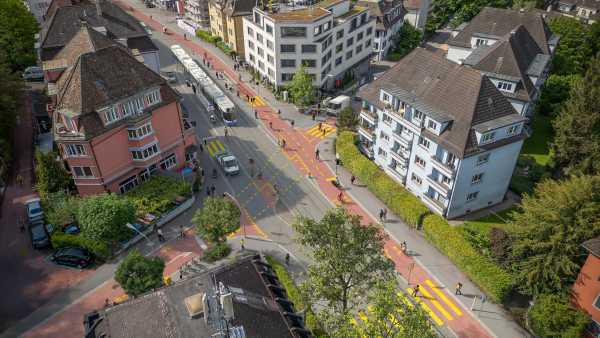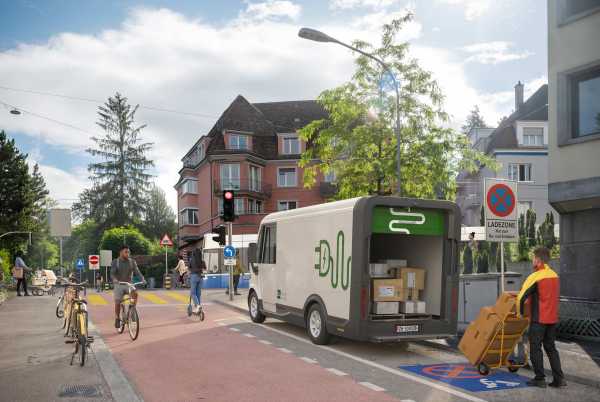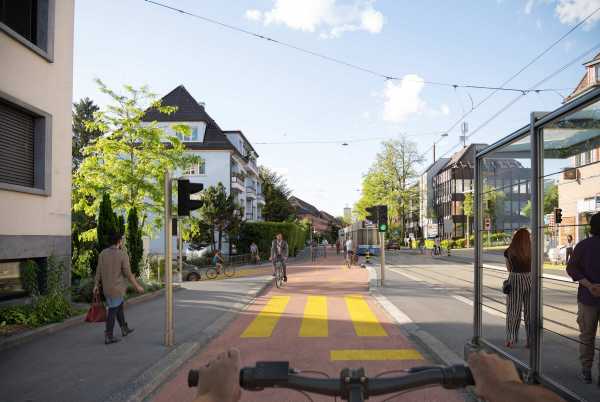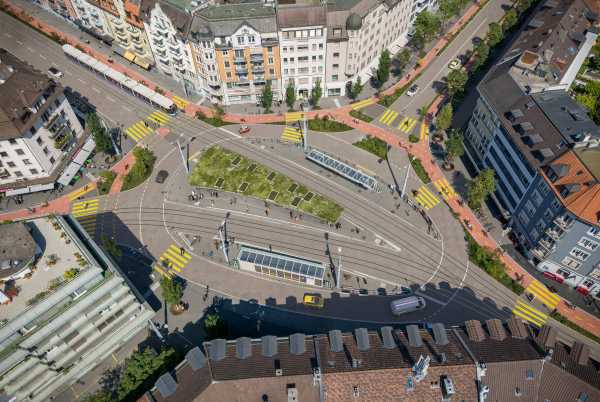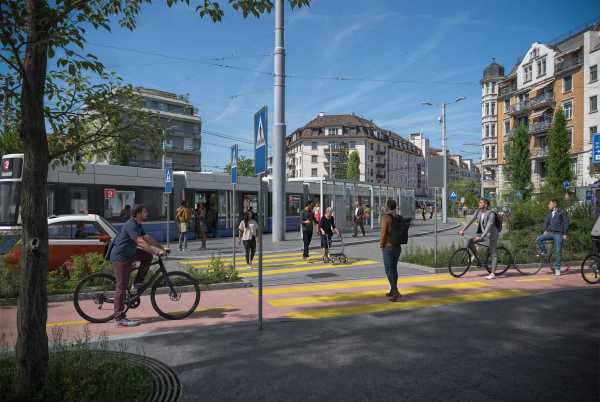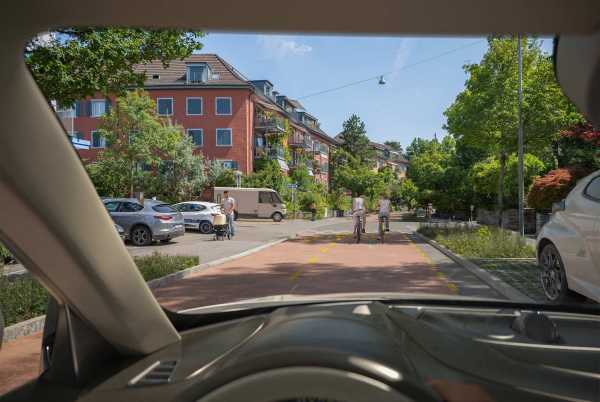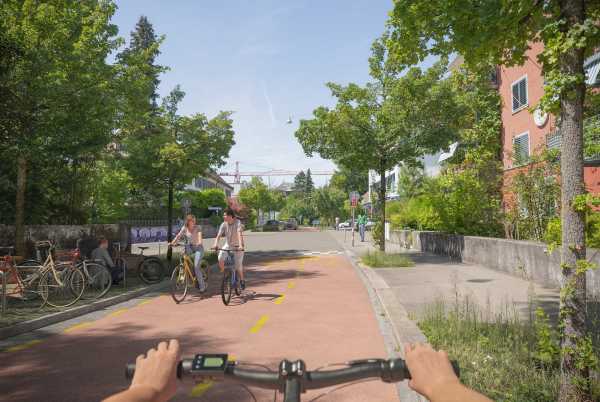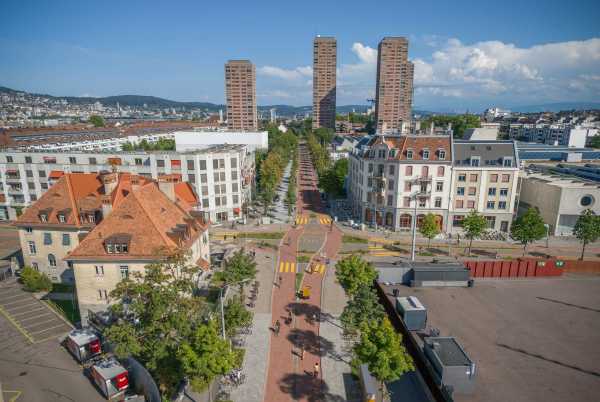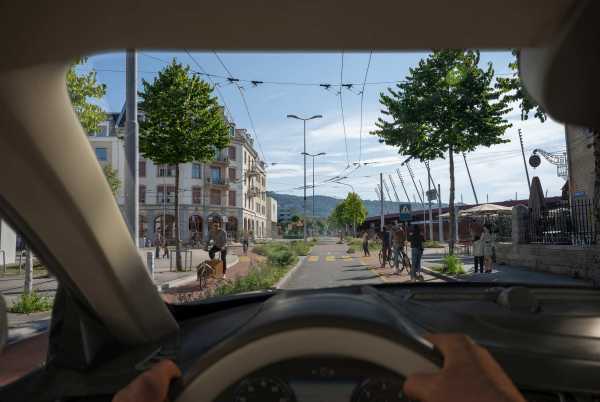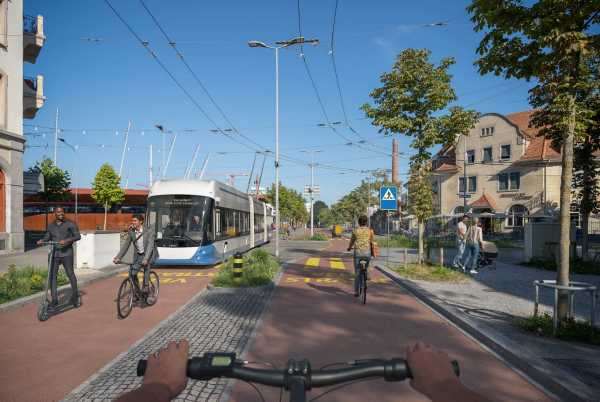Imagine a future where you no longer need to rely on a car, because public transport, shared vehicles, and micromobility solutions such as e-bikes and scooters meet all your travel needs. This vision is within reach, especially in Switzerland, where the average commute is only 14 km, yet half of commuters still use cars to get to work. With the climate crisis intensifying and 69 percent of Swiss residents still owning a car, it’s clear that a shift to more sustainable modes of transportation is urgently needed.
To support this shift, researchers from ETH Zurich’s Department of Civil, Environmental, and Geomatic Engineering have published new results about their road space allocation scheme called “E-Bike City” (EBC). Findings suggest that the vast majority of the city could benefit from around 10 percent more access to safe cycleways, while only limiting car access by around 3-6 percent in a few areas. Their new street re-design algorithm is flexible, allowing planners to integrate additional real-world considerations such as the reallocation of parking spaces or the proximity of bike lanes to green spaces. Rush hour problems are limited by new research into dynamic road allocation, which would increase capacity for both motorists and cyclists at peak times thanks to a new model of the bi-modal urban network traffic dynamic. EBC also pays for itself after only two years with a cost-benefit ratios of 9 and 31 (for every CHF spent, it generates 9-31 CHF over its lifetime).
Finally, in a recent survey of over 6,000 Swiss residents, the majority of respondents (41.7 percent) said they would support EBC if it came to a vote and only 40.8 percent were against it (the rest are undecided). In the city of Zurich, 54.1 percent support EBC and 35.3 percent are against. In the canton of Zurich, however, 42.1 percent are in favor and 46.3 percent are against.
The new findings are supported by a series of new 3D visualisations showing what a transformed Zurich could look like for motorists, cyclists, and pedestrians alike: quieter streets and more vibrant urban life. All of this can be achieved cost-effectively, while reducing emissions and improving the quality of life in Switzerland’s growing cities.
